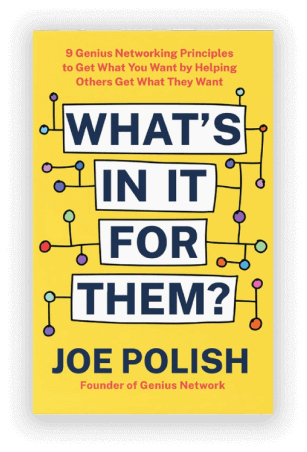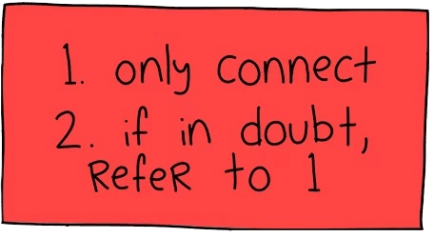Building A Team You Love (in 3 Steps) with Genius Network Member Brad Martineau™
[mashshare]
Episode Summary
Do you want to build a team you love? Brad Martineau, Genius Network Member and Co-Founder and CEO of SixthDivision, explains the 3 most important lessons in doing just that.
Here’s a glance at what you’ll learn from Brad Martineau in this episode:
- The 3 most important lessons you need to know to build a team you love
- V.V.A.E.C.: The big secret to finding and hiring right-fit team members
- Critical mistakes entrepreneurs make when hiring (and how to avoid them)
- Brad’s formula for building a powerful team to help you realize your vision and maximize your contribution
- “The Leadership Matrix” for creating an extraordinary culture and business
WHAT'S IN IT FOR THEM?
Get the first chapter for FREE and a limited-time viewing of "Connected: The Joe Polish Story"
Show Notes
- We start off asking “how do I get ahead?” and progress to “how do I help my team get further ahead?”
- In order for us to accomplish our vision, we need a team.
- Most entrepreneurs suck at hiring and bringing people on board.
- Rule #1: Fit, not Skill. We tend to look for people with skill sets but skill is only the beginning of the conversation.
- Does the person you are considering align to your vision or to the job you are trying to fill?
- You have to make sure that the people you bring on board share your values, otherwise you are going to butt heads.
- Does the person you are considering have an attitude of success?
- Prospective hires have to be able to fit into the environment while having chemistry with the rest of the team. Consider the fit into the team as a whole.
- Rule #2: Hiring, not Interviewing. Create a hiring process based on practical exercises to determine fit instead of asking just questions.
- Have your prospective hire do the job and then assess the fit. Before you provide an offer, you should already know they can do the job.
- Rule #3: Leadership, not Management. Have you ever tried to manage a relationship instead of lead?
- A low challenge and low support leader will create a culture of apathy and low expectations.
- A high challenge and low support leader demands a lot from their team but provides little support to get the job done.
- A low challenge and high support leader is a protector. The tend to do things for their employees instead of letting them learn how to do it on their own.
- A high challenge and high support leader is a liberator, they bring out the best in the team and enables them to grow.
- These three rules are an equation that leads to a powerful culture and a powerful business.
- If we exist as powerful entrepreneurs, our employees can’t help but exist as powerful people.





